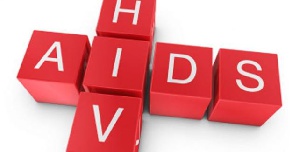 Stigma and discrimination result in poor quality of care for those who are infected by the disease
Stigma and discrimination result in poor quality of care for those who are infected by the disease
Stigma and discrimination related to HIV and AIDS a persistent problem in many health care facilities around the world, particularly in those countries hardest hit by the epidemic.
Stigma and discrimination result in poor quality of care for those who are infected or ill (or suspected of being infected), frighten away potential clients in need of HIV-related and other services from seeking care, and undermine prevention efforts by limiting access and services utilization.
There is growing body of evidence suggesting that stigma and discrimination in health care settings have contributed to the limited uptake of HIV services such as voluntary counseling and testing (VCT) and programs for the prevention of mother-to-child HIV transmission. As HIV treatment programs become increasingly available in resource-poor countries, access to these life-saving services will depend on the degree to which health facilities welcome and respect the right of HIV-positive clients.
Stigma and discrimination in health facilities have numerous causes, including inadequate knowledge among staffs about the models and risk of HIV transmission and judgmental attitudes and assumptions about the sexual lives of people living with HIV. Another significant cause of stigma and discrimination in health workers` fear of becoming infected during the cause of their work. In the absence of assurance that they will be protected from the virus, and without access to drugs for post-exposure prophylaxis, health workers may engages in behavior that can prevent HIV-positive and other vulnerable individuals from receiving lifesaving care and support.
Some examples of stigmatizing attitudes, behaviors and actions in health care settings are as follows:
1. Health workers who blame those who are infected with HIV.
2. Health workers who poorly treat patients that belong to stigmatized populations (men who have sex with men, commercial sex workers) or patient that they believed to be infected.
3. Health workers who breach client confidentiality by sharing test results with relatives and other staffs.
4. Health workers who discriminate against or not cooperate with colleagues known to be infected with HIV.
5. Health workers who demand routine, mandatory HIV testing, or insist on testing as a condition for providing services.
6. Health workers who segregate or isolate HIV and AIDS patients in special beds or wards when there is no clinical need to do so.
7. Health workers who discharge HIV-positive patients, regardless of overall health status, immediately or soon after test results become available.
Health workers’ fears are not unfounded; they are based on real risks due to their inadequate of access to supplies and training in infection prevention and standard precautions. There is mounting evidence that medical transmission is an important, yet largely neglected route of HIV transmission in resource-poor settings. While sexual transmission undoubtedly accounts for the vast majority of cases, it is becoming clear that HIV programs have paid insufficient attention to transmission in health care settings. The number of cases of HIV infection through medical transmission is certainly not trivial; transmission of hepatitis B and C is also as serious risk.
Health workers’ negative attitudes and behaviors are also driven by beliefs and myths about HIV and AIDS, inadequate knowledge and skills in HIV and AIDS clinical management and counseling, lack of drugs and supplies, limited knowledge of the models and risks of HIV transmission in health care setting, and an overestimation of the risk of HIV infection following occupational exposure. In addition, health care workers are members of the communities in which they work; their attitudes often reflect the prevalent stigma found in communities especially towards marginalized populations such as sex workers.
The following quote from a health care provider in Kenya illustrates the challenge:
Health workers are expected to know, feel and act certain ways. But what has prepared them for this HIV and AIDS. Many health workers have the same information the man in the street has …. The disease is fatal! Who is not afraid of death? … Knowledge and skills? Yes, that they have. It is part of many terms with their fears and anxieties about their own sexualities and mortality, their prejudices?
The needs and obligations of HIV-positive health workers are also not being adequately addressed. Hospitals lack policies that protect the right of infected staff to confidentiality, employment in a discriminate-free environment, insurance and sickness benefits, counseling, and medical care. Due to fear of stigmatization and unemployment, health worker avoid being tested to lean of their own HIV status, depriving themselves of the opportunity to receive timely emotional support and clinical care. By denying their own possible infection, health workers potentially expose their patients to infection.
To reduce stigma and discrimination in health care settings, we need to address health care workers’ fears about getting infected on the job, and their need to protect themselves through standard precautions. This are participatory training methodologies to modify health care workers’ attitudes while giving them practical knowledge and tools to both ensure client right and meet their own needs for a work environment
1. Stigma and discrimination towards people believed or know to be HIV-positive.
2. Clients’ right to dignity, comfort, privacy, confidentiality and safety.
3. Clients’ right to receive services free from discrimination.
4. Basic information about HIV transmission.
5. Health care staff’s need for safety from injury and infection on the job.
6. Standard precaution practices for infection prevention.
7. Detailed guidance for preventing occupational injury and expose to HIV.
8. Post-exposure care, including post-exposure prophylaxis
9. HIV testing issues in the health care setting.